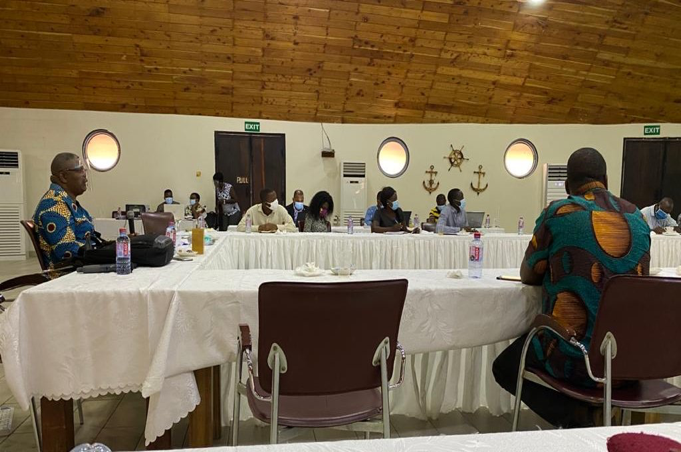The Accountability, Rule of law and Anti-Corruption Programme (ARAP-Ghana), a European Union (EU)-funded initiative in collaboration with the Commission on Human Rights and Administration Justice (CHRAJ), has reviewed and validated the National Anti-Corruption Action Plan (NACAP).
The validation workshop, which took place at Aqua Safari-Ada and also saw the launch of the Civil Society Organisation’s (CSO) annual report, highlighted the progress of implementation of the activities prioritised for the year ending 2019; and also analysed trend of progress over the past five years of adaptation and implementation of the programme.
The High-Level Implementation Committee (HILIC) highlighted among others the key performance of NACAP over the years: which includes automation of the superior and circuit courts-electronic case distribution system; introduction of integrity awards; development of code of conduct for MPs; digitisation of key revenue generation institutions/computerised revenue generation systems that simplifies tax collection; and establishment of public relations and complaints units of the judicial service among others.
Deputy Commissioner of CHRAJ, Richard Quayson, speaking to the media on the side-lines of the workshop, indicated that modest strides have been made over the five-years of implementing NACAP – with eight activities completed and 119 broad activities at various stages of implementation, and eight activities are yet to commence.
“Since inception in 2015, NACAP has made modest strides. Key among these is the sustained advocacy and outreach to bring relevant stakeholders on board, and intensification of public awareness on the NACAP. It is worth mentioning that the Right to Information Law (RTI) has been passed. We have been consistent with the digitisation drive because it reduces physical contact and makes it easy for cash transactions to be traced, a key factor in eliminating corruption,” he said.
NACAP, which is Ghana’s strategic response to the fight against corruption, seeks to advocate and promote high integrity and ethical systems and practices, professional standards, as well as effective enforcement of anti-corruption laws premised on the three-prong approach – namely prevention, education and enforcement.
With an objective of building public capacity to condemn and fight corruption and make corruption a high-risk, low-gain activity, NACAP has organised regular public education and awareness programmes on the evils of corruption and the ethos of anti-corruption in MDAs, the general public and private sector nation-wide.
Notwithstanding the success chalked up, the report also outlined some challenges in the implementation process, among which were: low patronage and reporting on NACAP among stakeholders; limited resource allocation; and some implementing partners reporting on activities not pertaining to their institutions.
The recommendations put forth by the report to intensify its actions against corruption for the next year include enactment of the Conduct of Public Officers Law and the Illicit Enrichment Law; enacting the whistle-blower amendment bill; survey on corruption; survey on gender and corruption; and encouraging media houses to use the national anti-corruption reporting dashboard(NACoRD) to submit reports on corruption.










